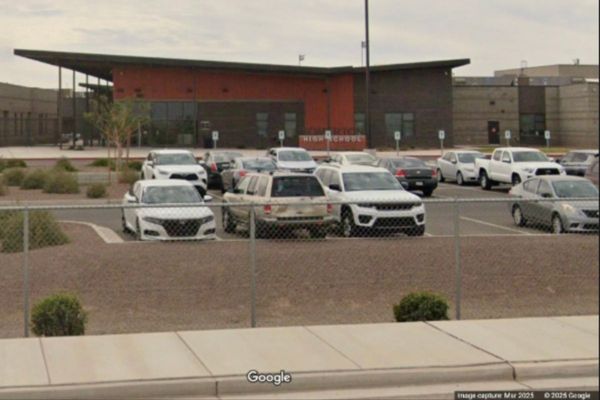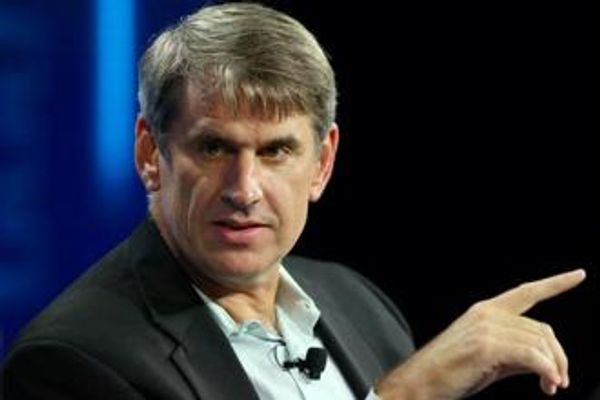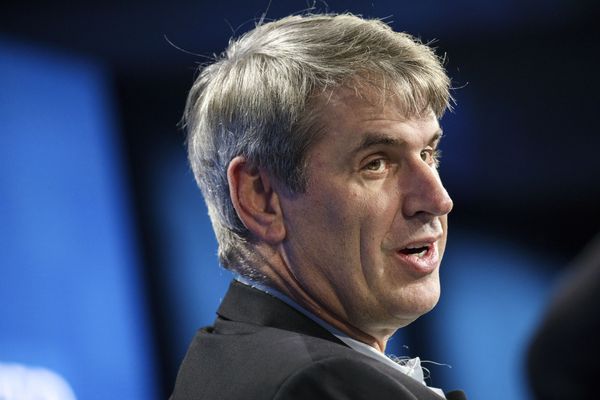
As Travis Kalanick was in Chicago interviewing a candidate to be his deputy at Uber Technologies Inc., two investors were on a plane to deliver the news that they wanted the chief executive officer gone.
Matt Cohler and Peter Fenton, partners at venture capital firm Benchmark, hand-delivered a letter urging Kalanick’s resignation, people familiar with the matter said. It was the result of a multi-week campaign led behind the scenes by Bill Gurley, another Benchmark partner who occupied the firm’s board seat at Uber, with the goal of ousting Kalanick. The memo was signed by five major backers, who account for as much as 40 percent of shareholder votes.
A contentious board meeting led to Kalanick’s decision a week earlier to take an indefinite leave of absence, but many investors -- worried about the company’s reputation as well as their own -- believed the move didn’t go far enough. They crafted a two-page letter outlining their grievances. It blames Kalanick for putting the company at legal risk, citing a trade secrets lawsuit by Alphabet Inc.’s Waymo and the use of a software tool called Greyball that’s the subject of a U.S. criminal probe, according to two people who have seen it but asked not to be identified discussing private matters.
The letter obliquely references private findings from a company investigation into Uber’s past, conducted by former U.S. Attorney General Eric Holder. The report that was presented to the board contained details not in the public version. Several of the investors were concerned that Kalanick’s role in some of those incidents would continue to inflict damage on Uber, people familiar with the matter said.
A court filing in the Waymo case, revealed Wednesday, suggested that Kalanick knew the engineer who until recently oversaw Uber’s driverless car project possessed discs of information from Google. Kalanick told Anthony Levandowski around March 2016 that Uber didn’t want the information and that he shouldn’t bring it to the ride-hailing company, and the engineer told management that he destroyed the discs, according to the filing.
While the investors’ letter bore a folksy tone, rather than one reflecting the language of a corporate lawyer, it was direct on one point: Kalanick must step down. Cohler and Fenton, who have had little regular involvement with Uber in the past, tracked the 40-year-old Kalanick down at his Chicago hotel Tuesday morning. Kalanick read the memo, and the three men spoke for about an hour.
After deliberating for most of the day, Kalanick made up his mind to resign. “I love Uber more than anything in the world, and at this difficult moment in my personal life, I have accepted the investors’ request to step aside so that Uber can go back to building rather than be distracted with another fight,” he said in a statement Tuesday night.
Garrett Camp, an Uber founder and director, tried to instill confidence Wednesday following the previous day’s mutiny. “We will hire a great CEO and keep pushing forward. Change is healthy, and needed,” he wrote on Twitter. “It’s much more stable than people think. We are still here; still running the company.”
On Thursday, more than 1,400 Uber employees -- nearly 10 percent of the company -- had signed a petition showing their support for Kalanick and opposing his resignation as CEO, according to a person familiar with the matter. "Yes, Travis is flawed, as we all are. But his passion, vision, and dedication to Uber are simply unmatched," the petition reads.
The company sought to reassure all that the future was secure.
“We’re fortunate to have a strengthened board with accomplished directors to guide us as we focus on serving our customers and employees, maintaining our growing business, and building a company and culture that we can be proud of,” Uber said in a statement.
Although Kalanick’s tenaciousness ultimately led to his undoing, it was part of what drew venture capitalists to him in the first place. Under his stewardship, Uber attracted more than $15 billion to finance a global conquest that spanned more than 500 cities over about eight years. “I had known and wanted to work with Travis for around a decade prior to Uber’s launch,” Cohler, who was an executive at Facebook Inc. before joining Benchmark, wrote in an online post last year. “I was a passionate early user of Uber in San Francisco; it quickly became as indispensable to my everyday life as I’d remembered Facebook being to college students in 2004.”
As Uber’s global workforce crossed 14,000 this year, the many shortcomings that resulted from frantic growth began to show. Susan Fowler, a former software engineer at the company, penned a blog post in February alleging sexual harassment, discrimination and a human-resources department complicit in such indiscretions.
The response from Kalanick was swift. Uber hired Holder’s law firm to investigate and commissioned a separate probe into HR matters. He held multiple staff meetings to address concerns and broke into tears at some of those events. Major investors were momentarily convinced he would resolve the issues and supported him staying as CEO, people familiar with the matter said.
But the scandals kept coming. He was caught on tape arguing fiercely with an Uber driver over falling pay in a video published by Bloomberg. Other reports emerged about Greyball, which was used to help drivers evade law enforcement officials; a trip to a karaoke bar in Seoul featuring women dressed in number tags that was the subject of an HR complaint; and the mishandling of a rape victim’s medical records in India.
After the Bloomberg video of his argument with a driver, Kalanick apologized and said he needed “leadership help.” The board then launched a search for a chief operating officer.
But Kalanick continued to stall on key hires that could threaten his influence, investors said. The company desperately needed a chief financial officer, a position left vacant for more than two years; the issue became more urgent when the head of finance departed this year. Information within the company had been tightly controlled, giving Kalanick a significant advantage over subordinates, investors and fellow board members.
Under the daily pressure this year, investors said they saw a change in Kalanick. He insulated himself with two main allies, Emil Michael and Arianna Huffington. Michael, Uber’s then head of business, was a longtime confidant of Kalanick, and they were tied to many of the same scandals. Huffington, a digital media mogul, was appointed to Uber’s board last year and became Kalanick’s chief defender at those meetings, people familiar with the matter said.
The death of Kalanick’s mother in May dealt a devastating blow. He attended Uber’s board meeting two days after her funeral. The discussion lasted for more than six hours. Directors decided to oust Michael and that Kalanick should take a lesser role but remain as CEO. They also discussed a leave of absence for Kalanick.
Kalanick mulled the decision until the day of the announcement last week and finally agreed to go on leave. Day-to-day management would be left to a committee of 14 Uber executives. Kalanick said he would spend his time off mourning, recruiting his new team and working on “Travis 2.0.”
With Kalanick away, Gurley spent the past weekend rounding up investors’ signatures. He told them he didn’t believe changes could be made at the company with Kalanick at the helm and that Uber wouldn’t be able to move past its devastating scandals until a new CEO is installed, said a person familiar with the matter. Fidelity Investments, First Round Capital, Lowercase Capital and Menlo Ventures joined Gurley’s firm to endorse the call for Kalanick’s resignation.
The shakeup at Uber didn’t stop at Kalanick. On Wednesday, TPG Capital decided to give a board seat to David Trujillo, replacing his colleague David Bonderman, who stepped down last week after making a sexist remark at an Uber staff meeting. Later Wednesday, Gurley resigned and handed his seat to Cohler.
While Gurley’s criticism of Kalanick endeared the venture capitalist to some, it also created enemies at Uber, people close to the company said. Michael accused Gurley of putting his own reputation over the company’s, two people close to Michael told Bloomberg
--With assistance from Emily Chang Olivia Zaleski and Lizette Chapman
To contact the reporter on this story: Eric Newcomer in San Francisco at enewcomer@bloomberg.net.
To contact the editors responsible for this story: Mark Milian at mmilian@bloomberg.net, Robert Fenner
©2017 Bloomberg L.P.










